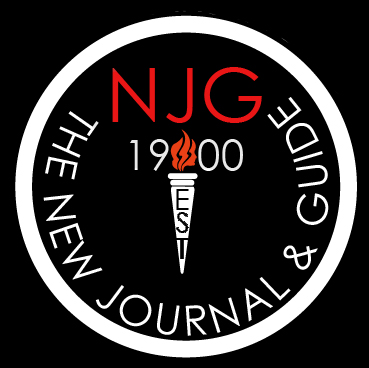Local News in Virginia
Genealogical & Historical Society Helps In African American Ancestry Searches

By Rosaland Tyler
Associate Editor
New Journal and Guide
The number of amateur detectives who joined The Middle Peninsula African-American Genealogical and Historical Society (MPAAGHS) jumped from about two dozen members to 350 members from 2004-2021 because many people still want to understand their past.
While some MPAAGHS members have written books about their family tree, none have soared high and gripped the human imagination, like the 1976 bestseller, “Roots,” which Alex Haley wrote about his ancestors about 17 years ago. These days, the MPAAGHS is training amateur sleuths who are still writing books about their ancestors.
A case in point is the conversation between Gloria Waller and Bessida Cauthorne White who discovered they had common ancestors at a 2004 slavery conference in Williamsburg. These two near-strangers learned Gloria’s great great grandmother married Bessida’s great-great grandmother. So, Waller and White left the Williamsburg conference, chatted on the phone for several months, and launched The Middle Peninsula African-American Genealogical and Historical Society, which celebrated its 15th year anniversary in 2019.
“We had long conversations talking about the various families in the area,” Bessida Cauthorne White recently told The New Journal and Guide in a recent email interview.
“After years of talking, in August of 2004, we concluded that we knew much more about many of the Middle Peninsula families than they knew about themselves and decided that we needed to expand the conversation and family discussions beyond the two of us,” White said. “We called a meeting at the Essex Public Library in Tappahannock the very next month and the organization was born. About 25 enthusiastic persons attended the first meeting,” she said.
The rest is history. Expert genealogists provide lectures at monthly meetings. They pull out computers and tell members how to conduct online searches at monthly meetings. The organization also plans field trips.
“The organization has been successful beyond our wildest dreams,” White said, citing success stories.
For example, Wayne K. Driver who grew up in Gloucester, relocated to Philadelphia,and recently moved back home to Virginia, joined the genealogy group and wrote a book on his ancestors..
Driver’s book is titled, “Free Negroes and Mulattoes of Gloucester County and the Tidewater Area of Virginia Prior to 1800.”
He said his research showed that many of his ancestors “were listed as free Negroes” or mulattoes prior to 1800.”
“This discovery ignited my interest,” Driver said. “I wanted to know more about these families and how they fit into a society in which most people of African descent were slaves and where those of European descent dominated. I wondered if these free people of color had any rights, if they owned property or had the freedom to move about without being harassed. Since my focus was on the years prior to 1800, I also wondered how they felt about the Revolutionary War. Which side did they support? Which side promised a better future for them?”
Another member wrote a biography that focuses on the life of Captain Hansford C. Bayton, an Essex County native and public office holder who was the owner of a successful steamship business in the late 19th and early 20th centuries.
The book is a biography of Dr. Sullivan-Detheridge’s maternal great grandfather Captain Hansford C. Bayton, an Essex County native and early public office holder who became the owner of a highly successful steamship business in the late 19th and early 20th centuries.
But some ancestral records may show that your ancestors were thieves, chronic liars, murderers, and up to no good. There is no guarantee that you will run into good news as you reconstruct your family history by sorting through birth records and slave rosters, or traveling to West Africa, like Alex Haley did.
Instead, you may spot ugly ancestral patterns. But you must continue to attend monthly meetings at the Essex Public Library, until you discover you have free choice. You don’t have to follow the patterns of the past. This is a great time to research your family tree. It is a great time to sort things out by joining amateur detectives who belong to the Middle Peninsula African-American Genealogical and Historical Society. It is a great time to get on with your life.
“Unless we know our ancestors we can’t know who we are,” White said.
To learn more about your family tree, please click this link, meetings:http://mpaagenealogicalsociety.org/
“
You may like


Virginia House Speaker To Keynote NSU’S 112th Commencement


Disbanding of TSU’s Board of Trustees: An “Attack On DEI”


THE PATH OF TOTALITY: If You Missed It, Catch Next One In 20 Years!


Hampton Roads Delivers Another Successful UNCF Mayors’ Masked Ball


Baltimore Bridge: A City’s Heartbreak, A Nation’s Alarm


A Conversation With New Journal & Guide Publisher














